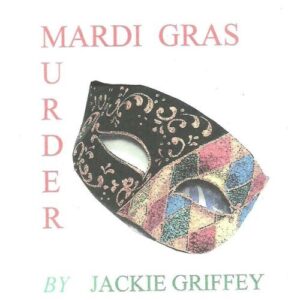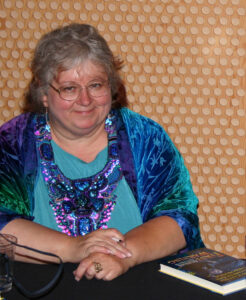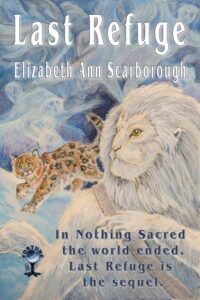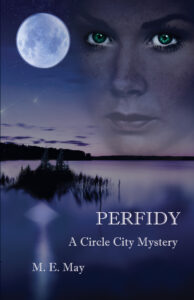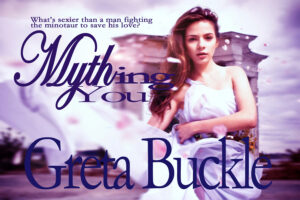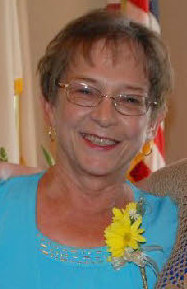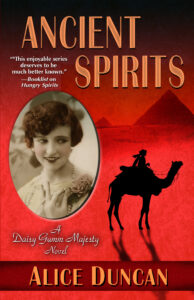Having a horror writer as today’s guest–it being Halloween– seemed to be fitting. I was first introduced to Tim’s writing over ten years ago by a mutual friend. I was looking for a few writers to invite to write stories for an anthology I was putting together, and it was suggested I contact Tim. After reading Tim’s short stories, I was hooked. He’s a talented writer, and a wonderful person. I’m thrilled to have Tim as our guest today!
 Tim Waggoner wrote his first story at the age of five, when he created a comic book version of King Kong vs. Godzilla on a stenographer’s pad. It took him a few more years until he began selling professionally, though. He has published more than twenty novels and two short story collections. He teaches creative writing at Sinclair Community College and in Seton Hill University’s Master of Fine Arts in Writing Popular Fiction program. He hopes to continue writing and teaching until he keels over dead, after which he wants to be stuffed and mounted, and then placed in front of his computer terminal. Visit Tim’s website at: http://timwaggoner.com/
Tim Waggoner wrote his first story at the age of five, when he created a comic book version of King Kong vs. Godzilla on a stenographer’s pad. It took him a few more years until he began selling professionally, though. He has published more than twenty novels and two short story collections. He teaches creative writing at Sinclair Community College and in Seton Hill University’s Master of Fine Arts in Writing Popular Fiction program. He hopes to continue writing and teaching until he keels over dead, after which he wants to be stuffed and mounted, and then placed in front of his computer terminal. Visit Tim’s website at: http://timwaggoner.com/
“The oldest and strongest emotion of mankind is fear, and the oldest and strongest kind of fear is fear of the unknown.” –H.P. Lovecraft
Writers often refer to the above quote when discussing what makes great horror fiction, but when they do so, they’re usually referring to the fear part. But I want to highlight the word unknown, specifically referring to the elements writers build their stories from. Genre fiction is marked by certain shared elements called tropes, but when a trope becomes too familiar and overused, it loses it power and descends into cliché. The princess that needs rescuing by a handsome prince, apocalypse survivors named Adam and Eve, a character doesn’t realize until the end of the story that he or she has been dead all along . . . Each of these ideas may have been fresh once, but now they’re stale to the point of fossilization.
Clichés like this are especially deadly in horror fiction. Once something is known, it can’t be unknown. Vampires, werewolves, witches, zombies, knife-wielding serial killers, abduction-obsessed aliens, haunted houses . . . An audience raised on a steady diet of horror – especially horror movies – has encountered each of those tropes and more dozens of times, and if you use them in your horror fiction, you’re more likely to elicit yawns of boredom then you are shivers of delight.
But there are ways to take dull, flat tropes and, like Dr. Frankenstein cobbling together a new creation from bits and pieces of the dead, make them live again. Let me tell you how.
Deconstruct Tropes:
Tropes exist because they embody a primal idea. The trick is understanding what that idea is. Take Jason from the Friday the 13th movies. What does he look like? He’s a silent figure who wears a white mask and featureless dark clothing, carries a bladed weapon and relentlessly hunts down his victims. Remind you of any well-known myth image? If any of you said the Grim Reaper, go the front of the class. White hockey mask = skull face. Dark clothes = black robe. Machete = scythe. Jason worked so well for audiences because they instinctively recognized the trope he was built on. He’s the embodiment of Death.
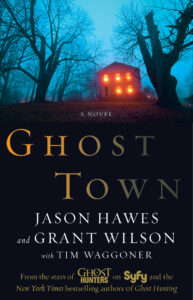 In my story “Anubis Has Left the Building,” I wrote about the ancient view of death versus a modern view. Anubis embodies the old gods of death: mysterious, powerful, terrifying, and majestic. For the modern god of death, I used a disaffected youth to whom the end of life is nothing more than a simple biological process. As he says, “Sometimes meat moves, sometimes it doesn’t.” Anubis represents an old trope, and the youth represents that trope deconstructed and reworked for the modern age.
In my story “Anubis Has Left the Building,” I wrote about the ancient view of death versus a modern view. Anubis embodies the old gods of death: mysterious, powerful, terrifying, and majestic. For the modern god of death, I used a disaffected youth to whom the end of life is nothing more than a simple biological process. As he says, “Sometimes meat moves, sometimes it doesn’t.” Anubis represents an old trope, and the youth represents that trope deconstructed and reworked for the modern age.
In my novel Darkness Wakes, there’s a creature called the Overshadow. If you feed it the life force of another, it will directly stimulate the pleasure center of your brain, giving you ecstasy unlike anything you’ve ever known. At no place in the novel do I use the word vampire, but that’s the trope I built my monster from. By reworking tropes, I’m able to avoid reader’s preconceptions, and I can focus on the concepts underlying those tropes. In the case of Darkness Wakes, I wanted to focus on the ideas of symbiosis and addiction, and the Overshadow allowed me to do this without centuries’ worth of vampire baggage getting in the way. You can do the same with your stories. Pick a trope, strip it down to its essential core, and then rebuild it. Or to put it more simply, take your trope shopping and buy it some new clothes.
Use Tropes From Other Cultures:
Remember when Japanese-inspired horror was all the rage in America? Movies like The Ring and The Grudge were big box office, and the reason was simple. They presented tropes that were fresh to American audiences. Of course, those tropes have become clichés of their own now, but there’s still a world’s worth of legend and myth for you to draw on to help you write your own stories.
For example, I recently heard that according to an Hawaiian creation myth, our universe was born from the death of a previous universe, and the only creature to survive this process of destruction and rebirth is the octopus. Now, you don’t have to use this myth in its entirety. You can take the basic concept of an endless process of universes dying and being reborn, with one creature from the previous universe always surviving. Maybe this survivor hates the new universe and is determined to bring about its death. Maybe this is how the cycle is supposed to work. That would mean the “monster” is actually a vital part of the cosmic scheme of things, and in that sense, not a villain at all.
And there you have a brand-new trope, born out of another culture’s myth. All it takes is a little research and a little imagination.
 Find Analogues of Tropes:
Find Analogues of Tropes:
Let’s say you want to write a zombie apocalypse story, but – ever mindful of to avoid clichés in your horror – you want to create something fresh. Pick one aspect of the trope and take a step sideways with it. In this case, let’s choose the contagion aspect of the zombie apocalypse, along with the loss of identity. Maybe some force – the government, an evil corporation, a foreign power, extraterrestrials – have created a virus that destroys a human’s psyche, overwriting it with a single personality and set of memories, effectively creating a race of mental clones who are really many expressions of one individual. No flesh-eating, reanimated dead here, but that’s the point. You’ve grabbed hold of an old idea, taken a “step to the left,” as they say in Rocky Horror, and by doing so made it seem new again.
Combine Tropes Or Elements of Tropes:
Take a werewolf, an evil spirit inhabiting a mortal body, and a serial killer, throw them into your mental Mixmaster, and viola! You have a character who, when the sun goes down, becomes possessed by the spirit of a killer. Take a mad scientist, the concept of eternal punishment in Hell, and witchcraft. Mix well, and you get a scientist who’s created a virtual reality program that simulates Hell, perhaps as some kind of extreme psychological therapy. But one of the subjects in his experiment is taught dark magic within the simulation – magic that somehow actually operates in the real world, much to the scientist’s dismay.
Learn to mix and match tropes like this, and you’ll have an endless supply of story ideas.
Create Your Own Tropes:
Aristotle said the only way to get to the universal is through the particular. Want to find new tropes to create your horror from, tropes that will strike a universal chord in your readers? Then start by taking a good look inside yourself.
What are you (and no one else) afraid of?:
Death, torture, mutilation, the loss of a loved one – especially a child . . . Humans share so many fears. But if you want to create a new trope, you need to find out what you as an individual are afraid of that’s unique to you.
When I was a child, my sister and I were afraid of feathers and band-aids. I can’t remember which of us was scared by which item, nor do I remember why we found them so frightening. But those innocuous objects don’t, in and of themselves, conjure up feelings of fear for most people. That makes them ripe ideas to base new tropes on.
When I was in fifth grade, my dad took me to see Jaws in the theater. Not long afterward, I was taking a shower, and it occurred to me that I was surrounded by water, like in the movie, and I imagined a shark emerging from the shower head, expanding to full size as it came, like some kind of bizarre cartoon character. It’s a strange imagine, one I could easily base a new trope on.
 Look To Your Dreams:
Look To Your Dreams:
I have to admit to not having a lot of experience in this area. My dreams are usually quite dull, consisting of me talking to people I don’t know (and no, I don’t remember what we talk about). But sometimes I have nightmares of all the lights going off and someone pounding violently at the front door. And sometimes I dream of wandering through an endless series of rooms with no way out. Neither of these scenarios seems all that interesting to me, but I know people who have wild, incredibly vivid dreams. And if you’re lucky enough to have an interesting dream life, make it a habit to record your dreams in a notebook every morning upon awakening. I bet you’ll come up with numerous original ideas for your horror fiction, thanks to your own subconscious (which is no doubt far more inventive than mine!).
Pay Attention to the Wonderfully Weird World Around You:
I do this a lot. I make it a point to be, as Henry James said, one of those people “on whom nothing is lost.” I’m constantly looking around, checking out my environment in search of anything that strikes me as a strange. As soon as I see something cool, I open the note app on my phone and write it down before I forget it. I figure that if I’m the only person in the world who notices something, then it’s bound to be a new trope when I eventually incorporate it in a story.
For example, I often write in Starbucks, and one time in the very store where I’m now at (sitting, as a matter of fact, at the same table where I’m writing this), I saw a man staring at his laptop, muttering over and over, “What are you doing here? What are you doing here?” I also once saw a woman breathe on her hand and then wipe it across the seat of a chair before sitting. Also at this store I once saw a girl child wearing what looked like a wedding ring. I’ve already used the muttering man in a story. The hand-breather and child bride are still on my list, waiting to be used.
While driving around town, I once saw a vehicle that had the word Soulless on it and a personalized plate that read SKINNER. Intrigued, I followed it to a restaurant called the Chop House. And people wonder why I write the kind of stories I write.
All of these images/events are things that I noticed. Who knows what kind of things you’ll notice if you start paying more attention to your surroundings? And that’s the point – we don’t know. We can’t. And that’s why what strikes you as strange and interesting can make for the most original horror tropes of all – because they’re your observations and no one else’s.
So go forth and venture into the unknown – and make sure to take the rest of us with you. To paraphrase Clive Barker’s Hellraiser: you have such sights to show us.
For Further Reference:
Not sure what ideas are clichéd in horror? Then check out these sites:
“Horror Cliches” http://horror.about.com/od/horrorthemelists/ig/Horror-Movie-Cliches/Dollheads2.htm
“10 Cliches Horror Writers Should Try to Avoid” http://writinghood.com/writing/10-cliches-horror-writers-should-try-to-avoid/
“Horror Fiction: Ten Cliches to Avoid” http://horror.fictionfactor.com/articles/cliches.html
“Horror Stories We’ve Seen Too Often” http://www.strangehorizons.com/guidelines/fiction-common-horror.shtml
“51 Worst Horror Movie Cliches” http://www.dreadcentral.com/story/51-worst-horror-movie-cliches
Thank you, Tim, for being our guest today, and for the great tips! In case you’re wondering, yes, Tim did write a story for me. Two, in fact. 🙂 “Fixer-Upper” appeared in Single White Vampire Seeks Same, and “All In the Execution” for Places To Be, People To Kill. If you have questions or comments for Tim, he’ll be with us all day. Thank you!
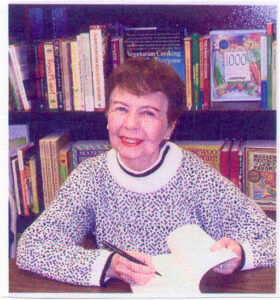 This is a great time to be a writer, and being an optimist, I hope it’s going to get even better. With all the opportunities now open to us, we have all kinds of opportunities to publish ourselves. These of course include in print but also digital books and audio books as well. Right now, it’s easy to get discouraged about the number of ebooks being published because there are so many free ones on the market and well, you know what shape the economy’s in. No wonder people are looking for free ones, and of course we authors are trying to get name recognition as well. I think my best sales tools are the books that people have read and liked so they bought others in the series of the novel they liked. (There’s a tip: to get your work out and keep in touch with other writers and groups, too. )
This is a great time to be a writer, and being an optimist, I hope it’s going to get even better. With all the opportunities now open to us, we have all kinds of opportunities to publish ourselves. These of course include in print but also digital books and audio books as well. Right now, it’s easy to get discouraged about the number of ebooks being published because there are so many free ones on the market and well, you know what shape the economy’s in. No wonder people are looking for free ones, and of course we authors are trying to get name recognition as well. I think my best sales tools are the books that people have read and liked so they bought others in the series of the novel they liked. (There’s a tip: to get your work out and keep in touch with other writers and groups, too. )
